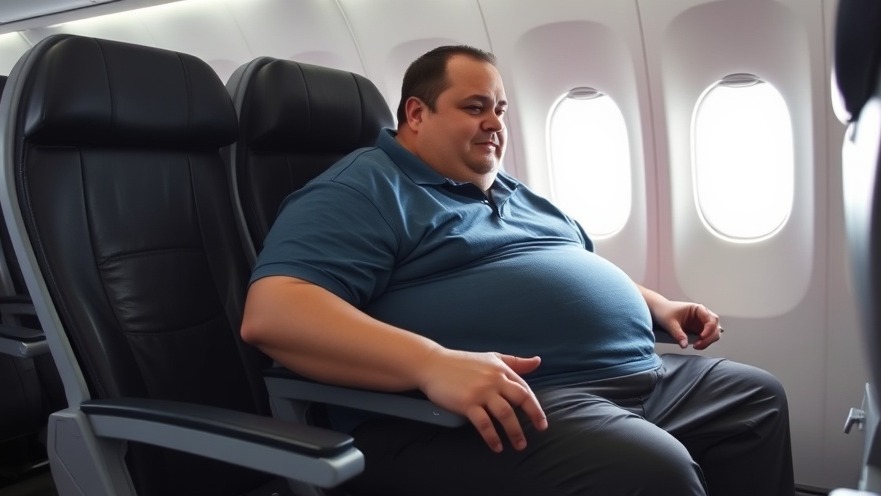
Southwest Airlines Sets New Policies: What Does It Mean for Plus-Size Travelers?
In an effort to streamline its services amid shifting market demands, Southwest Airlines has announced a new policy that drastically alters how plus-size passengers will navigate air travel. Starting January 27, the company introduces a requirement that individuals needing an additional seat must purchase it during their initial booking, rather than having the option to request it free of charge at the airport. This shift comes alongside the introduction of assigned seating, marking a significant transition for the airline, which has long been known for its open seating policy.
A Closer Look at the New Requirements
The revamped rules state that refunds for the extra seat will now depend on specific conditions: flights must not be full on departure, both seats must be booked in the same class, and the request for a refund must be submitted within 90 days. Previously, Southwest offered more considerable flexibility, allowing passengers to request an additional seat without pre-buying, a practice that alleviated the travel experience for those with larger body sizes. Additionally, those who do not purchase an extra seat in advance and find themselves on a full flight will face being rebooked onto another flight, adding further stress to what can already be a challenging travel experience.
Broader Context and Potential Repercussions
It's essential to consider the implications of this policy change beyond just plus-size travelers. Jason Vaughn, a travel agent who specializes in catering to the needs of plus-size individuals at his website, Fat Travel Tested, highlighted that this decision could affect all passengers by diminishing overall comfort in crowded flights. He characterized the policy change as a substantial detriment to customer experience, reminding us that air travel is about providing comfort and space.
This recent adjustment aligns with a broader strategy from Southwest Airlines to enhance profitability and meet investor demands amid financial pressures. Earlier this year, the airline made headlines for discontinuing its much-touted 'bags fly free' policy, further altering the landscape of budget-friendly air travel. The focus appears to be shifting heavily toward streamlining operations and squeezing as much revenue as possible from existing services, which may alienate loyal customers.
Responses and Reactions to the New Policy
The reception to the new policies has been mixed. While some view these changes as a necessary evolution in an increasingly competitive environment, many loyal customers express disappointment, fearing that the fundamental essence of Southwest’s service is eroding. Such sentiments echo through various service industries that have grappled with similar choices in the face of economic pressures.
Critically, Vaughn implies a disconnect between corporate decisions and customer satisfaction, suggesting that the airline has lost its grip on understanding who its clientele truly is. This sentiment reflects a growing concern that brand loyalty may suffer if quality of service diminishes in favor of policies aimed at maximizing profit margins.
The Future of Airline Policies: A Lesson for the Industry?
As major airlines, including Southwest, navigate these turbulent waters, the future might demand a careful balance between profitability and passenger comfort. Observers suggest that the public's response will be pivotal in determining whether Southwest's approach will succeed or backfire. Is this a predictably cyclical moment in airline history, or is Southwest's latest overhaul indicative of a broader industry trend?
Call to Action: Reflect on Your Travel Plans
With these policy changes looming, travelers are encouraged to reflect on their upcoming journeys. As airlines continue to adjust their offerings, consumers have the power to influence corporate decisions by voicing their opinions through feedback mechanisms and choosing to support airlines that align with their comfort and service expectations. Consider exploring various airlines, paying attention to their policies on passenger comfort, and advocating for transparent practices that prioritize customer satisfaction.
 Add Element
Add Element  Add Row
Add Row 



Write A Comment